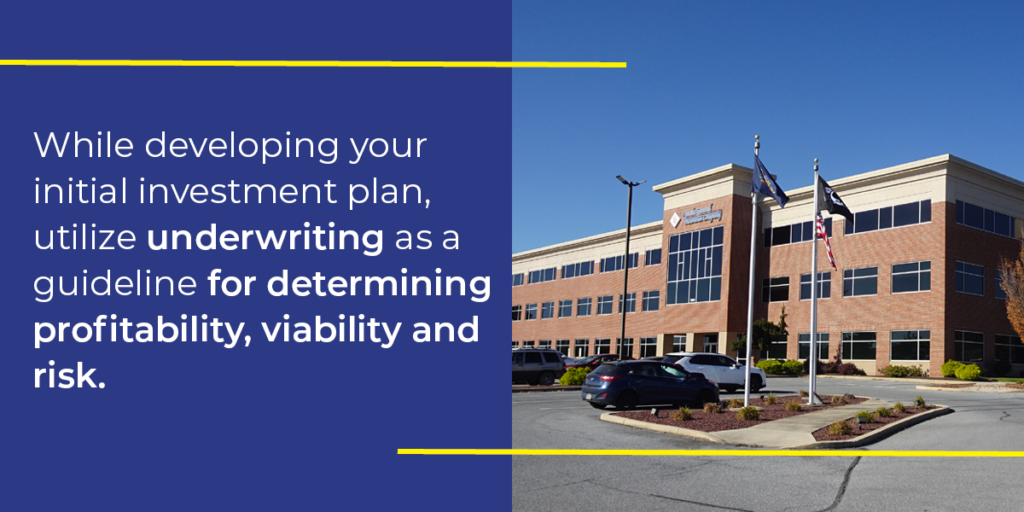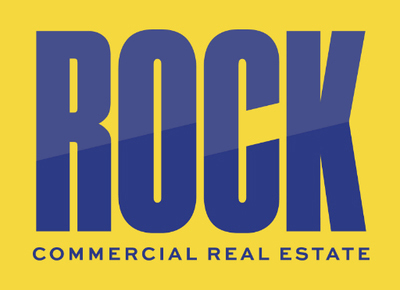
4 Tips for Buying Office Space

by Emily Klingler | 5 min. read
Owning commercial real estate can be a lucrative investment decision for your business’s capital, but it is also a journey that seldom has a clear, direct path. A well-informed buyer should consider first if they are buying property primarily to assist their core business or as a pure investment. That way you will not only determine the type of investment you are making when buying commercial office space, but also understand how to identify which properties are best suited for accomplishing those investment goals.
Here are four tips that will help to focus your search for the right office property for your business or investment needs.
1. Have a Detailed Investment Plan
Having a clear understanding of your investment and ownership objectives is essential to execute them successfully, so it is important to create a detailed plan that identifies everything from your target location, size, quality, lateral amenities, visibility, to your ideal return on investment (ROI). These may be very different decisions depending upon whether it is a pure investment or one that relates to an underlying business need. There are several avenues of investment and ownership in commercial real estate, each equipped with their own financial benefits, flexibility and risks. Two common options are:
Building Equity
If you’re looking for a new home for your company, owner-occupied offices build equity with your capital investment and grant you full control over build-out and customization to establish your business brand. These long-term investments don’t provide passive income, but they do allow you to benefit from property value appreciation, security in your location, and stable mortgage payments.
Pure investment properties also allow you to build equity, but typically you will need to pay less for the property as you will need to have a debt/equity ratio risk buffer and actual or assumed vacancy to satisfy your lending institution’s standards and qualifications.
Increasing Revenue
If your business is looking to increase revenue and cash-flow potential, you may opt to buy an office property and lease it partially to tenants, which allows you the opportunity for future expansion for your own needs while also defraying that cost. This is another long-term investment and allows you to maximize your returns with only conservative risks. But it also demands due diligence on the landlord’s part to ensure the property remains lucrative by acquiring and maintaining quality tenants and enforcing effective property management. You’ll also need the knowledge and skills to negotiate leases that align with your business plan and assure both the landlord and tenant are able to operate profitably.
2. Make Sure the Money Works
Regardless of what type of investment you are making, securing financing for your transaction can be a hurdle. While developing your initial investment plan, utilize underwriting as a guideline for determining profitability, viability and risk.
This exercise will not only help to screen properties but also prepare you for the loan application process with its related expenses, and can be done using either pro-forma calculations or more in-depth analysis with the help of a trusted real estate professional.

3. Research Market Trends and Development Potential
Since 2020, commercial office properties have witnessed significant shifts in vacancy rates, property values, and build-out trends. As a buyer, the key to successfully navigating this evolving landscape is interpreting how the office sector is performing and expected to perform in the current real estate market. Access to comparable office sales and real-time market intelligence allows you to make data-driven decisions that are in your business’s best interests.
Buyers aiming to renovate or redevelop their office investment should research construction costs, zoning codes, and interest rates that may impact their plans. Buyers interested in leasing should be aware of current vacancy and lease rates, tenant demand, and location demographics.
4. Find Trusted Professionals for Custom Solutions
Developing an investment plan and researching market data are complex, detail-oriented processes that can seem overwhelming to buyers. But these are crucial steps in determining how successful a property or location may be for your business investment.
Every transaction is different, and ROCK has the insights and experience to help you make the most of your office property investment. Reach out today and let us help you achieve your business goals.





